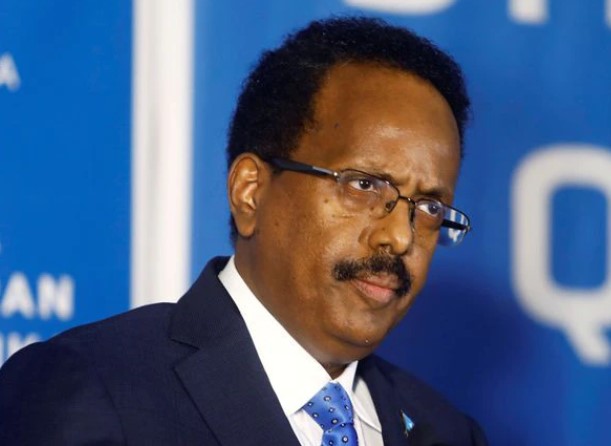×
The Standard e-Paper
Join Thousands Daily

Somalia's President Mohamed Abdullahi Mohamed addresses delegates at the Somali election negotiation in Mogadishu, Somalia. [Reuters]
Somalia's prime minister suspended the intelligence chief on Monday, prompting a public rebuke from the president and highlighting growing divisions at the heart of the political elite.